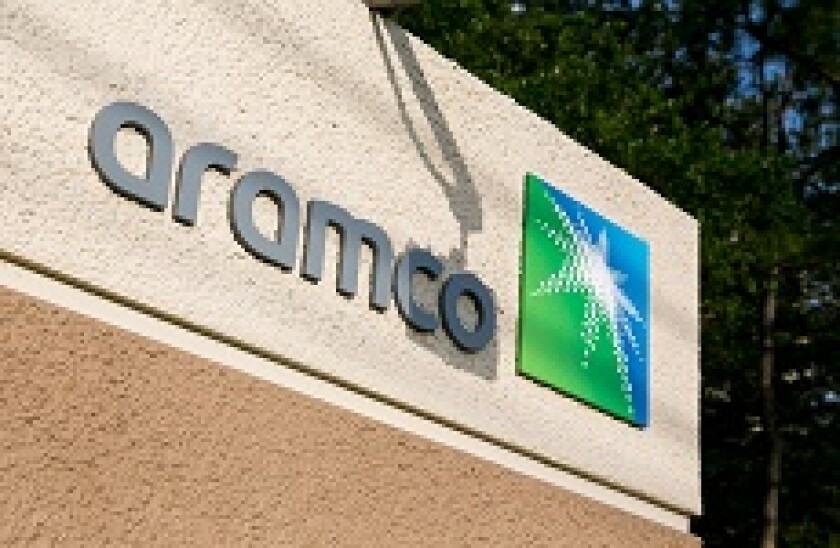IPOs happen for a variety of reasons — to provide an exit for a sponsor or a founder, to raise money to pursue new business opportunities, or to generate usable acquisition currency for stock-funded M&A, for example. In some cases, particularly the listings of state-owned companies, the point is to apply a firm smack of market discipline to the sluggish wastrel SOEs coddled by their government owners, something the IMF has historically been keen to see.
For Saudi Aramco, the world’s most valuable and most environmentally damaging company, none of the above applies.
Aramco IPO version one, unveiled around 2016, contemplated the sale of around 5% of the company on an international exchange, prompting genuflecting from the New York and London stock exchanges and every international equity capital markets bank. The UK regulator went as far as drafting new “premium listing” rules for sovereign-owned companies to lure it to London, though they’ll be just as useful for other dictatorships looking to push privatisation.
That 5% would have been the largest IPO in history, if it had hit the $2tr valuation that still seems to obsess the Saudi state. It would have raised $100bn for national coffers at a time when the war in Yemen, worries over the oil price, and an increasingly expensive state were to the fore.
After much excitement, that plan was shelved and, instead, Aramco made its public debut in the bond market, earlier this year. Again, the rationale was dubious. It was flagged as an “acquisition financing” for PIF’s stake in chemicals company Sabic, which meant raising real money and paying real interest in order to shuffle stakes between different state owners.
Furthermore, numbers published as part of the bond prospectus made it clear that Aramco was raising around a month’s income, and had more than twice the bond proceeds as cash-on-hand. Between pricing and settlement, Aramco had earnings of around a quarter of the deal size. It emphatically did not need the money.
IPO version two is a more modest affair altogether — a local Tadawul listing, probably of a smaller slice of the company (the total market cap of the main market is under $500bn, so a 5% listing would be far too large in the index) sold to a club of biddable local investors encouraged to buy the shares. Potential GDRs could follow down the road, in New York, London or even Tokyo.
Once again, hitting a $2tr valuation seems to be important to someone in the Saudi government. Investors that can be strong-armed during the bookbuild will help reach that headline number, but markets have a way of finding a level eventually.
But where the $10bn bond was pointless, an IPO of just a sliver is more pointless still. If you want a few billion now, do a bond. Heck, do some commercial paper — there is no point having liabilities hanging around when you’re sat on a torrent of cashflow. IPOs are more about the story than the cashflow. Investors buy shares because they believe growth is coming. If they just wanted to clip coupons, they’d buy bonds.
Aramco has a yarn it has been spinning about investments in chemicals and downstream industries (hence the Sabic stake), but the business is mostly very simple — extract more oil, for a cheaper price, than anyone else in the world. Perhaps there’s growth to be had in chemicals, where Aramco is going toe to toe with every other oil major, but Aramco is not likely to find new reserves, boost margins or enter new markets. It will continue to haul vast amounts of oil out of the ground.
For an investor, then, it’s the ultimate dividend stock. It’s an exercise in sitting there and watching the cash roll in, being paid a reliable if uninspiring dividend to do so. Oil price goes up, more cash in, oil price goes down, less cash. But it’s not terribly exciting, beyond the extreme size of the numbers.
International oil majors are trading at a blended price/earnings ratio of 13, or thereabouts. Based on this number, and $111bn in earnings, you’re looking at a $1.44tr valuation. Aramco has a lower production cost than others, and it is less likely to cause extreme collateral environmental damage, as BP and ExxonMobil both have done. But it has a heavy dose of political risk thrown in too, with a chance of drone strikes and outside risk of a major regional war.
If the purpose of the IPO is to demonstrate the wealth of the Saudi state (because it certainly isn’t about a real need to raise money or involve outside investors) perhaps it’s best not to tangle too closely with the public equity markets in whatever form. That’s a lesson well learned by the Saudi-backed SoftBank Vision Fund of late, with its WeWork investment.
But the real problem with the Aramco IPO is that it has never been about real capital markets investing at all. It’s always been a political project, a chimera to be chased by salivating investment bankers, the largest vanity transaction ever to grace a stock exchange. That was the case in 2016. It’ll be no different next week.

